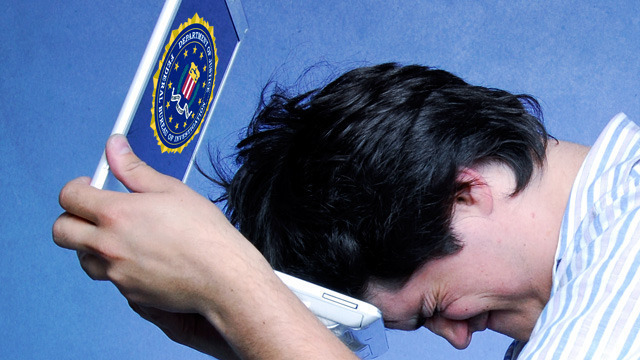Results 1 to 1 of 1
-
US argues it shouldn't have to give Megaupload user his legit files
06-12-2012, 01:45 AM #1US argues it shouldn't have to give Megaupload user his legit files
Property wasn't forfeited because US didn't seize servers—it only copied data
by Jon Brodkin - June 11 2012

Photo illustration by Aurich Lawson
Out of all the Megaupload customers who used the file sharing service for perfectly legitimate reasons, one has become a poster boy for those who lost access to data when the federal government shut Megaupload down. Kyle Goodwin, an Ohio videographer who runs a business taping high school sporting events, went to court seeking return of his files. The Electronic Frontier Foundation backed him, and even the Motion Picture Association of America said it would be OK with seeing files returned to users if they weren't illegally downloaded copyrighted material.
But in the case's most recent development, US attorneys and the US Department of Justice argued in a brief on Friday that Goodwin has no right to demand his files back from the government. The government never actually seized his property, the US argued in a brief filed in US District Court in Eastern Virginia.
"The government did not seize any of the Megaupload-leased servers. Instead, pursuant to the warrants, the government copied certain data from the servers," the US brief states. "While the search warrants were being executed, servers belonging to Carpathia and leased by Megaupload were taken offline so that they could be properly forensically imaged."
The US government does not possess any of Goodwin's property, and it would be impractical to retrieve all user data from Megaupload servers, the brief argues. "Because of the large number of servers leased by Megaupload, not all of the servers were imaged by the government (based on estimates provided by Megaupload, imaging all 1,103 servers would have taken approximately 22,000 person-hours)," the government said.
Since the servers themselves weren't seized, Goodwin's property was never actually forfeited to the government; thus US law doesn't allow the relief requested by the Megaupload user, the US argued. The business-related monetary loss he claims doesn't count as "irreparable harm," and his request would impose too great a burden, the brief states.
"Mr. Goodwin does not argue that the actual search violated his rights—he actually argues the opposite," the brief states. "Mr. Goodwin claims that the government’s failure to seize his information led to its abandonment 'under circumstances in which it was both inaccessible and potentially subject to destruction.'"
Instead of asking the government to bear the cost of retrieving information, Goodwin could "hire a forensic expert to retrieve what he claims is his property and reimburse Carpathia for its associated costs," or "sue Megaupload or Carpathia to recover his losses" if the site's terms of service were violated when Megaupload went offline.
That would obviously be a cumbersome process for Goodwin, and one that would have to be repeated en masse by every Megaupload user who wants legitimate files back.
"When the government shut down Megaupload three months ago, it made it impossible for innocent third parties, like our client Kyle Goodwin, to access their data stored on that site," the EFF says. "Others—like service provider Carpathia—have also voiced legitimate complaints about their property getting caught up in the government’s dragnet. But the government has tried to wash its hands of all responsibility, insisting it doesn’t control the property anymore and that the court has no authority to intervene."
US District Court will have to make a decision here—if it sides with the US government, people like Goodwin will be out of luck. But if Goodwin were to win, users might be able to get their data without the cumbersome steps of "hir[ing] a forensic expert" or suing Megaupload or Carpathia. While Goodwin's case covers only one person, its ultimate result could set a precedent for all remaining Megaupload users.
Thread Information
Users Browsing this Thread
There are currently 1 users browsing this thread. (0 members and 1 guests)





 Reply With Quote
Reply With Quote